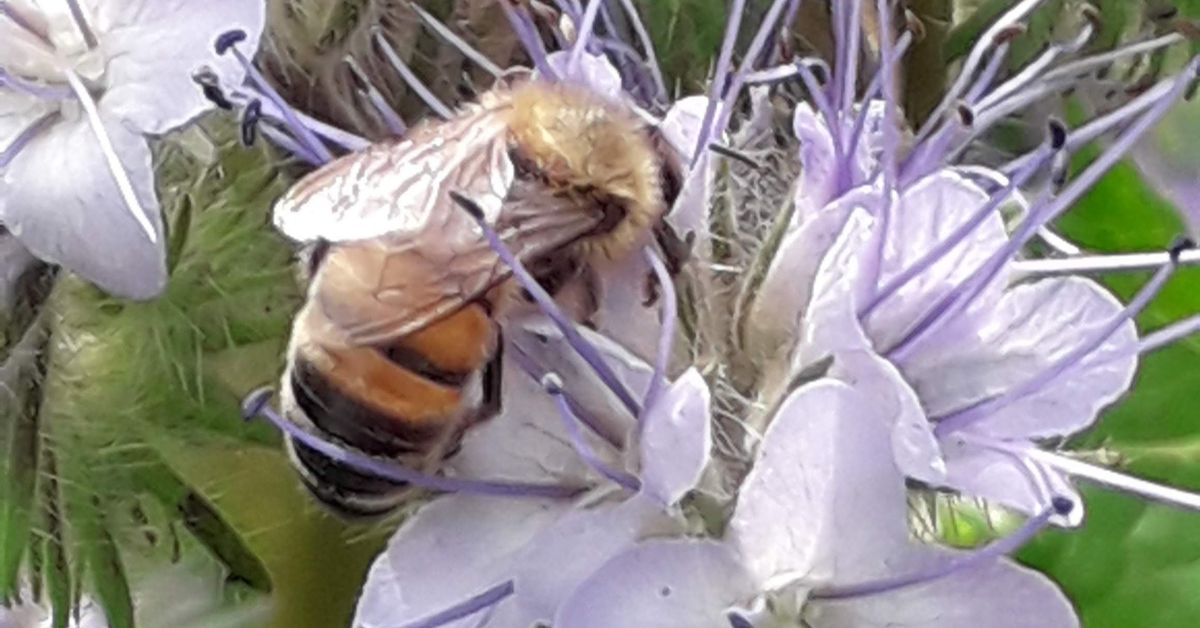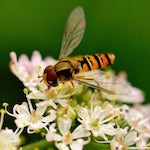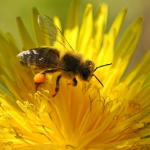Serious decline in Britains’ pollinators
Wild bees and overflies lost from a quarter of the places they were found in 1980, study shows. The study was based on more than 700,000 sightings of bee and hoverfly species from 1980 to 2013.
A widespread loss of pollinating insects in recent decades has been revealed by the first national survey in Britain, which scientists say “highlights a fundamental deterioration” in nature.
The analysis of 353 wild bee and hoverfly species found the insects have been lost from a quarter of the places they were found in 1980. A third of the species now occupy smaller ranges, with just one in 10 expanding their extent, and the average number of species found in a square kilometre fell by 11.
A small group of 22 bee species known to be important in pollinating crops such as oilseed rape saw a rise in range, potentially due to farmers increasingly planting wild flowers around fields. However, the scientists found “severe” declines in other bee species from 2007, coinciding with the introduction of a widely used neonicotinoid insecticide, which has since been banned.
For further information……click on full article link.
Credit: The Guardian.
Full article: https://www.theguardian.com/environment/2019/mar/26/widespread-losses-of-pollinating-insects-revealed-across-britain
Pesticides harming bees and could affect food production
Bees are pollinators but they risk global extinction due to pesticides and other factors, which would have serious implications for food production and ecosystem health.
In Summary
- In recent years, bees have been mysteriously dying off from “colony collapse disorder.”
- It has been blamed partly on pesticides as well as mites, viruses, and fungi.
- The United Nations has warned that 40 percent of the planet’s insect pollinators, particularly bees and butterflies, risk global extinction.
- This would have serious implications for food production and ecosystem health.
A new study that allowed humans to spy on bumblebees inside their nests showed that pesticides can impair social behaviour, making it hard for bees to eat and rear their young, researchers said Thursday.
Previous research has shown that the common class of pesticides known as neonicotinoids can harm bees’ ability to forage outside the nest.
The latest findings add to long-standing concerns about these important pollinators’ health, which could affect food production.
Researchers tracked the changes in bees’ behaviour by placing cameras inside 12 specially made boxes that contained one chamber for a nest and another chamber for foraging.
Some bees were exposed to concentrations of the neonicotinoid imidacloprid similar to that expected in the environment. Others were not.
They found the pesticide-exposed bees were less social in a variety of ways than control bees placed in similar boxes but not fed nectar that contained neonicotinoids.
Read more ……click on full article link.
Credit: Daily Nation
Full article: https://www.nation.co.ke/lifestyle/health/Pesticides-harming-bees/1954202-4843802-92336t/index.html



